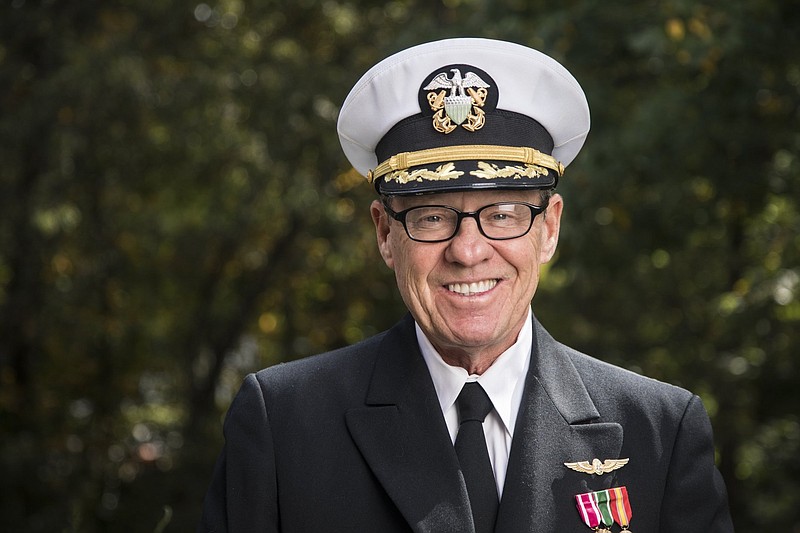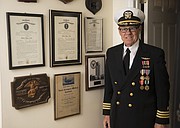For as long as he can remember, Cmdr. Edward Jewell always wanted to be a doctor, just like his father.
After completing his undergraduate degree and enrolling in medical school at Georgetown University, Jewell joined the armed forces to help pay for school and soon four years of mandatory service turned into a 24-year career with the U.S. Navy and Marine Corps as a military physician.
From Italy to Japan, Washington D.C. to the Great Lakes, Jewell traveled the globe, serving at land-based hospitals, as well as aboard the USNS Mercy and Comfort hospital ships. In Spain, he met his wife.
Out of all his experiences during relative peace times, nothing compared to war. And his experience wasn't at all what he expected.
During Operation Iraqi Freedom in 2003, Jewell found himself stationed on a hospital ship in the Persian Gulf, doing something he had never imagined - caring for enemy injured.
"This was not a popular war, and I was with a bunch of sailors doing an assignment that was not easy. We were taking care of enemy prisoners," he said. That's not what people thought we were going out there to do. We thought we would just be taking care of our own people."
But like true soldiers with a sense of duty to their country, Jewell said he and his colleagues took the job in stride.
(Read about other local veterans in our "21-Veteran Salute" series here)
BIO
Name: Edward W. JewellAge: 66Branch of Military: U.S. Navy and Marine CorpsYears of service:1981-2004
"In spite of that, the level of professionalism and duty was incredible," he said. "You know, I never heard anybody complain. I never heard anybody be angry that this was our assignment. ... They were very duty-bound and they understood that this was what our country wanted us to do. And we were going to do the best job possible."
And as to not forget his time and experiences during the war, Jewell, for the first time he could remember, kept a journal.
"I had never been in a war, and even though I've been in the Navy for quite a while at that point, I had never actually been in a combat zone per se," he said. "I figured that I should just write down what happened because I knew it would be a unique experience. And I'm not normally a diary kind of a guy, but I figured it would be worthwhile just for myself to remember years later what happened."
And when he came home, he learned about a writing project seeking service members like him. The National Endowment for the Arts wanted those who served in Iraq and Afghanistan, and their families, to submit writing about the war experience.
So from the pages and pages of writing he had compiled while abroad, Jewell edited down an excerpt that was accepted and published along with the writing of several others in a book called "Operation Homecoming" in 2006.
His writing was even later included in a cover story in The New Yorker magazine.
By the time Jewell retired in 2017 after spending the last 13 years of his working days at Fort Meade in Maryland as a civilian physician for the Army, Jewell had amassed a collection of reminders of his work including two Meritorious Service Medals, three Navy Commendation Medals, Iraq Campaign Medal, Global War on Terrorism Medal and the National Defense Service Medal.
And even as time passes and he enjoys his life of retirement with his wife in Chattanooga, one thing that seems unlikely he'll ever do is forget.
"I have reminiscences about that experience really every day," Jewell said. "Something will happen during my normal daily routine now and I'll have a flashback or some memory or just a little thought about something that happened during that war. So it's sort of with me all the time. You never forget."

